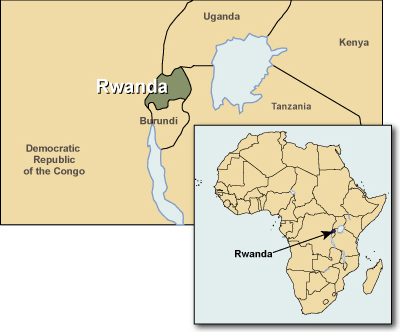Rwanda

Rwanda is one of the most densely populated countries in mainland Africa. It is among the ten African nations most severely affected by HIV/AIDS, according to the World Health Organization (WHO). The burden of HIV and tuberculosis (TB) co-infection in Rwanda is high, estimated to be between 40 percent and 60 percent, but WHO recently reported that the country has substantially improved its TB control efforts and has increased HIV testing for TB patients.
As in many other countries in the region, malaria is endemic in Rwanda, but the country has recently shown marked improvement in reducing the number of hospitalizations and deaths because of the disease. Water-borne diseases such as bacterial diarrhea, Hepatitis A, and typhoid fever are also prevalent in Rwanda.
NIAID-Funded Activities
NIAID-supported activities in Rwanda focus mostly on HIV/AIDS and include research on the impact of HIV infection in women and studies on genetic factors that affect susceptibility and progression of disease. NIAID also conducts and funds research in the U.S. and abroad aimed at diseases that burden Rwanda and other developing nations.
Scientific Advances
Nevirapine Sustains Advantage over AZT During Breastfeeding Period
In 2003, a landmark study funded by NIAID reported that infants who received a single dose of the antiviral drug nevirapine (NVP) soon after birth—and whose mothers took one dose of the same drug during labor—were 41 percent less likely to acquire HIV at birth or during breastfeeding than infants in infant/mother pairs who were treated with a more complicated, multi-dose AZT regimen.
The study, which started in November 1997, showed that the initial advantage gained by infants who, along with their mothers, received one dose of NVP was largely sustained by the group of children until they reached 18 months of age, offering compelling evidence that short-course NVP can reduce the number of children who eventually become infected with HIV.
This study and other subsequent trials have led WHO to recommend single-dose NVP as a cost-effective way of reducing mother-to-child transmission of HIV in developing countries. Several non-profit organizations now offer anti-HIV drug assistance programs that include NVP treatment in countries such as Kenya, Uganda, Cameroon, and Rwanda.
Learn more about the nevirapine study.
Related Links
Government
Non-government
- World Health Organization (WHO) information on Rwanda
back to top